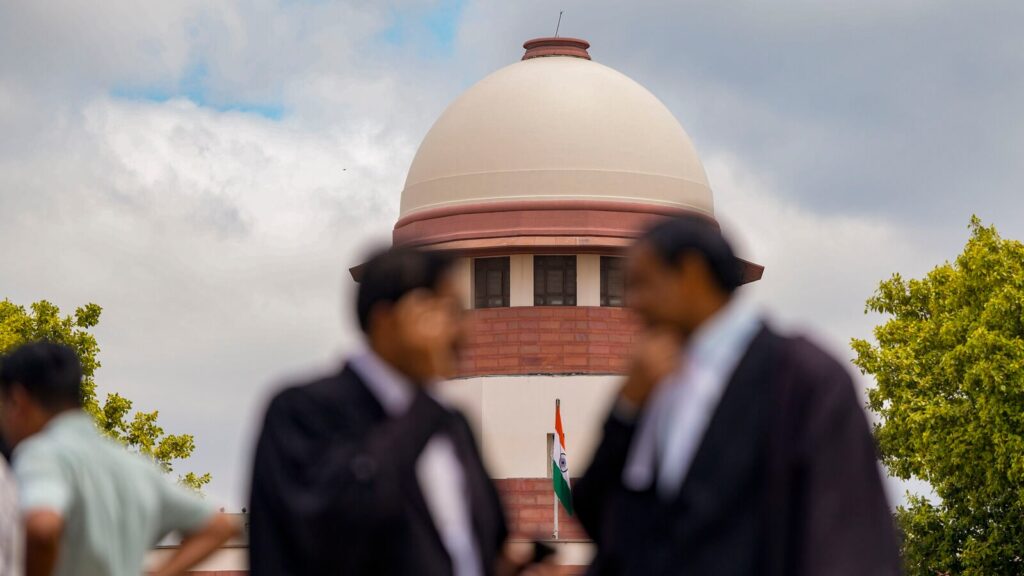Mint explains why the BCI set up the committee and what its recommendations could mean for the future of India’s legal sector.
Why was the committee formed?
The committee was formed following the BCI’s notification on 13 May of new rules that allow foreign lawyers and law firms to advise on foreign law, international law and arbitration matters in India on a reciprocal and regulated basis. These rules prohibit litigation and focus on cross-border transactions and international disputes.
The BCI’s aim is to promote India as a hub for international arbitration while protecting the interests of Indian legal professionals. The new framework also allows Indian lawyers to register as foreign law practitioners abroad without relinquishing the right to practice Indian law domestically.
Also read: Why India’s law firms are in a disputes hiring frenzy
Previously, foreign firms could only offer legal advice on a ‘fly-in, fly-out’ basis, meaning they couldn’t set up shop in India and only conduct specific, short-term, advisory engagements related to non-Indian legal matters by sending their lawyers on temporary visits.
Now, with strict registration and compliance requirements in place, the move marks a cautious opening up of the India’s legal sector, with corporate legal spending expected to cross ₹60,000 crore this year.
However, a backlash from Indian law firms—especially over potential constitutional conflicts and competitive disadvantages—prompted the BCI to initiate a thorough review of the plan.
What concerns have law firms raised?
Several Indian law firms argue that the new rules bypass the Supreme Court’s BCI vs A.K. Balaji judgment of 2018, which held that only Indian citizens may practice law in India, even in non-litigation matters, unless Parliament amends the Advocates Act.
Their main concerns include:
- Legal ambiguity: The rules, issued under BCI’s regulatory powers, may lack a strong legal basis without legislative backing.
- Vague boundaries: The scope of what foreign firms can advise on—especially in arbitration and transactions—remains unclear, risking indirect practice of Indian law.
- Unequal competition: Foreign firms bring stronger branding, global capital, and pricing power that could squeeze out Indian players.
- Compliance imbalance: Foreign firms with global systems may appear more compliant, skewing client preferences.
- Talent disruption: Global firms’ dollar-linked salaries could fuel poaching and reshape domestic talent dynamics.
- Data and tech oversight: Limited regulatory control over foreign firms’ IT and conflict-check systems raises confidentiality concerns.
Also read | So many law graduates, so few top jobs: What’s holding them back?
Lalit Bhasin, president of the Society of Indian Law Firms (SILF), previously cautioned against the unchecked entry of foreign law firms in a press release. “Allowing foreign law firms without a legislative amendment is not only legally untenable but also threatens to destabilise the domestic legal profession,” he said.
What will the committee look into?
The committee, headed by Cyril Shroff, includes other top legal minds such as Ajay Bahl (AZB & Partners), Suhail Nathani (ELP), Sandip Bhagat (S&R Associates), Mahesh Agarwal (Agarwal Law Associates), and Amit Kapur (JSA). BCI chairman Manan Kumar Mishra is a special invitee.
Its mandate includes:
- Examining implementation challenges and clarifying regulatory gaps
- Recommending safeguards to prevent indirect entry of foreign firms through referral arrangements or informal tie-ups
- Exploring reforms to help Indian firms stay competitive—such as allowing flexible business models, access to external capital, and legal tech investment
- Consulting senior advocates, retired judges, and firms to evaluate unintended consequences
The committee has been asked to submit its final report in 30 to 40 days. Based on its recommendations, the BCI will take a final call after consulting both Indian and foreign stakeholders.
What are the likely outcomes?
Legal experts expect the committee to recommend phased reforms that promote global integration while ensuring regulatory parity.
“If the committee plays it right, it has a chance to turn the current unease into long-term strategic strength for Indian law firms,” said Prachi Shrivastava, founder of Lawfinity Solutions, a legal marketing firm.
She added that a reciprocity-first model and a phased-entry approach—starting with backend advisory work—could ease the transition for Indian firms. Automated systems for fee disclosures, conflict checks, and jurisdictional limits could boost transparency without overwhelming smaller firms.
Also read: Can Vijay Mallya return home? He could. But it won’t be a smooth landing.
Amit Tungare, managing partner at Asahi Legal, expects the panel to push for “clearer demarcation of practice areas, standardised partnership frameworks, and reciprocity mechanisms that actually benefit Indian firms seeking global expansion—not just foreign firms entering India”.
“This committee has the opportunity to usher in clarity and balance—by ensuring fair competition, pushing for domestic reforms that modernise Indian practice models, and encouraging global visibility for Indian firms,” he added.
Ashima Obhan, senior partner at Obhan & Associates, emphasised that “phased liberalisation, symmetry in regulation, capacity-building measures, and clear delineation of permissible activities would go a long way in harmonising interests”.
Source:https://www.livemint.com/industry/bar-council-of-india-foreign-law-firms-in-india-cyril-shroff-committee-international-arbitration-india-advocates-act-11750137096778.html

